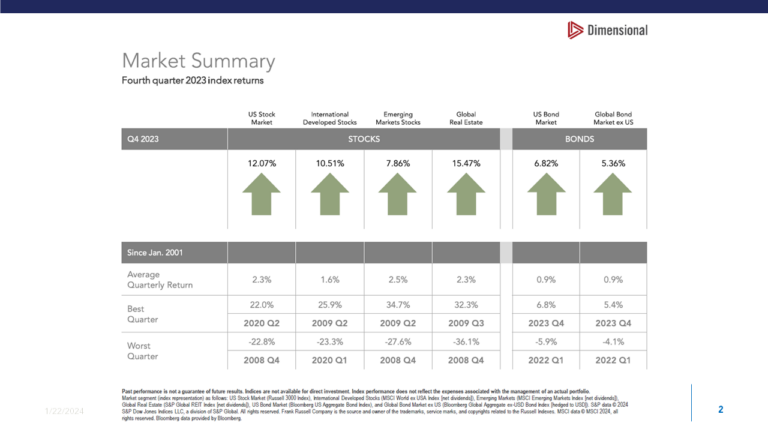Congress may be eliminating a prominent tax advantage of inheriting an IRA. The Senate Committee on Finance voted 26-0 in September to end the “Stretch IRA” for non-spousal beneficiaries. A “Stretch IRA” is a tax efficient way to pass assets to your heirs after death. Your beneficiaries inherit your IRA and are required to take the annual minimum distributions. However, they only owe tax on the withdrawals. The rest of the account continues to grow tax deferred.
If this new rule is passed, it will dramatically speed up the liquidation process and eliminate the ability to stretch an IRA out to multiple generations. It will force non-spousal beneficiaries to pay tax on the entire IRA balance within a 5-year period.
For example, Jack Doe passes away with a $500,000 IRA whose sole beneficiary is his daughter, Jane. Under current law, Jane can keep that money in her Inherited IRA, only paying tax on the required minimum distributions and any other withdrawals she takes. Under the proposed law, she will have to liquidate the IRA and pay income tax on the entire $500,000 within 5 years of her father passing.
If this new law is passed here are a few tips to keep in mind when thinking about your IRA and beneficiaries:
- If you are the IRA owner, pay greater attention to the current and estimated future tax rates of both you and your beneficiaries. Determining who will be in the lower tax bracket, and when, will be crucial to handling the inherited IRA in the most tax efficient manner. For example, from the scenario above, if Jack was in the 10% tax bracket in retirement and Jane was a high earner paying 33% tax, it would be more efficient for Jack to convert the account to a Roth IRA and pay the tax before he passed.
- If you expect to be a beneficiary of an inherited IRA, make sure these changes are integrated into your financial plan. If you know that you are receiving a large inherited IRA for which you will have to liquidate and pay tax within 5 years, you may want to avoid creating any unnecessary income in those years. (e.g. unnecessary capital gains on appreciated stock). Liquidating the IRA may push you into a higher tax bracket during those five 5 years. Other financial planning/tax strategies may need to be adjusted based on this change.
- This potential change is complex with many variables. Consider working with an experienced CERTIFIED FINANCIAL PLANNER™ professional to help you determine the best strategy for your situation.
The proposal has mentioned a few possible exceptions including exempting IRA’s with less than $450,000, an exclusion for beneficiaries no more than 10 years younger than the deceased account owner, and an exclusion for minors until they become of age.
The senate proposal is expected to be included in a bill called the Retirement Enhancement and Savings Act. Congress could vote on this act sometime in early 2017. Stay tuned to our blog for more updates on this potential change in 2017.
Alanna Conciardo
Financial Planning Associate


